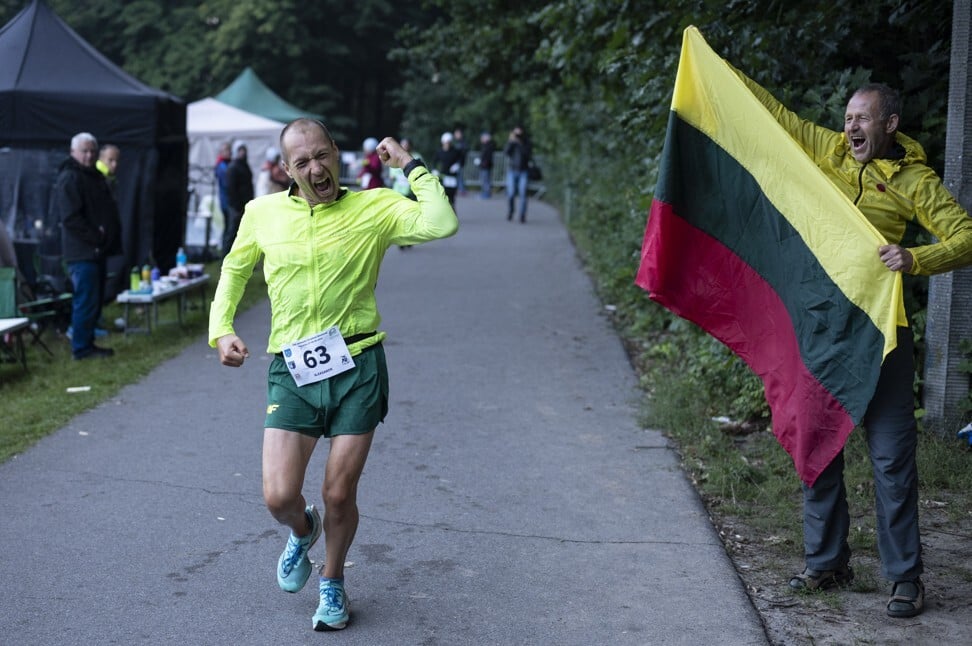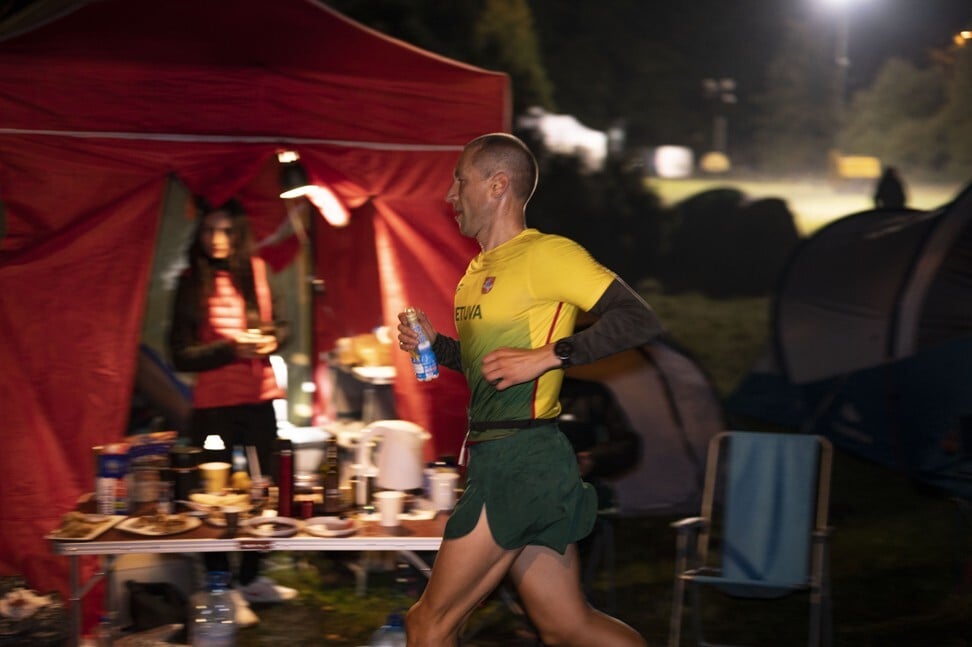
Meet Aleksandr Sorokin, the Lithuanian breaking world records on the lunatic fringes of ultra running
- They said the 24-hour running record was unbreakable, before Sorokin attempted it
- Lithuanian holds distance and time records throughout extreme ultra running

When Aleksandr “Sania” Sorokin finally stopped running on the August 29 in a park in Poland, there were no cheering crowds. They missed the breaking of one of the longest-standing endurance records – how far a human can run in 24 hours. Sorokin ran 309,399 kilometres, beating by almost six kilometres the mark set in 1997 by the legendary Yiannis Kouros, a record that was considered unbeatable.
Forty-year-old Sorokin, from Lithuania, has few rivals in the purest form of ultra-running – racing, colossal distances, in loops on a road or running track. There is no fancy gear, no spectacular landscapes. Considered the lunatic fringe of the sport, it is followed only by hardcore fans. Sponsors are not interested.
Sorokin, the world champion in 24-hour running, and world record-holder at 100 miles (11 hours, 14 minutes and 56 seconds) and in 12-hour running (170,309km), covers these colossal distances fast.
His pace, when he broke the 24-hour world record was 4:39 seconds per kilometre, equivalent to more than seven back-to-back marathons, at 3:15 each. Running marathons “for training”, Sorokin set a 2:40 personal best.
It was the pandemic that finally allowed Sorokin to beat Kouros’ record. Before lockdowns started, he worked full-time as a casino croupier.
Covid hit the Sorokin household hard. The casino, where his wife Jelena also works, was forced to close. But Sania saw it as an opportunity and ratcheted-up his mileage to more than 1,000km a month. The 12-hour, 100-mile, and finally the coveted 24-hour world record soon followed.

These achievements gave Sorokin hope of being able to run full-time. But no major brand showed interest in the Lithuanian.
“I got some sponsors, but it is always a one-time thing – here is €1,000 for you! I don’t know if I can make it much longer without having to find work.”
After breaking Kouros’ record, the only thing he posted on Facebook, was: “Thank you so much everyone for your support and congratulations!! 309km 399m. My dream came true.”
“I don’t know how to present myself.” He told the Post.
Fellow Lithuanian, world-class trail runner Gediminas Grinius, calls Sorokin “super talented, stubborn, and enormously humble guy. What he achieved is enormous, the record probably will not be broken for another 20 years.”
“Enormous” is a word that may have unkindly been used to describe Sorokin before. In 2012, before he started running aged 31, he weighed over 100 kilograms and led a “smoking, drinking and partying lifestyle.” Then he decided to get in shape and registered for a half-marathon.
Weighing around 90kg, he completed the half-marathon in 1:27. At the finish, he found a flier for a 100km race the following month. He finished it in 8:43, though admitted: “I did not really prepare for it”.
Sorokin had an athletic base to draw on. He used to be a rower – “I was quite good”. He was on the Lithuanian junior national team and went to world championships. In 2005, injury ended his rowing career.

But why not try more marketable forms of ultra-running, like trail running? What is the attraction of running in small circles in a park?
Sorokin explained he is the kind of person who enjoys being able to manage his races with precision.
“I need to know the exact numbers – distance, speed, and control them. I don’t want them to control me.”
Running in loops is not a problem. “It is the least important thing – where I run. I don’t really see anything around me anyway. I don’t remember anything about Spartathlon, but there must have been some nice scenery.” Sorokin won that 246-kilometre race in Greece in 2017.
Sorokin said that his mind is too busy strategising and calculating for him to be bored during 24-hour races, and that when he is at a low point: “I think that my country is following me. When it gets really tough, I think about my wife.”
Many ultrarunners are quick to claim super-athlete status, but Sorokin says ultras are not as competitive as Olympic-running disciplines. But to many Sorokin has already achieved the impossible.
Kouros predicted that his 24-hour record would stand “for centuries”.

Englishman Dan Lawson, the European 24-hour champion, told the Post, “Sania has been telling us he was going for the world record. We thought he was crazy. He proved us wrong – he smashed the unbreakable record. He is a great lad, very humble.”
Sorokin’s next target is the 48-hour world record that stands at 473,495 kilometres. Set by Kouros.